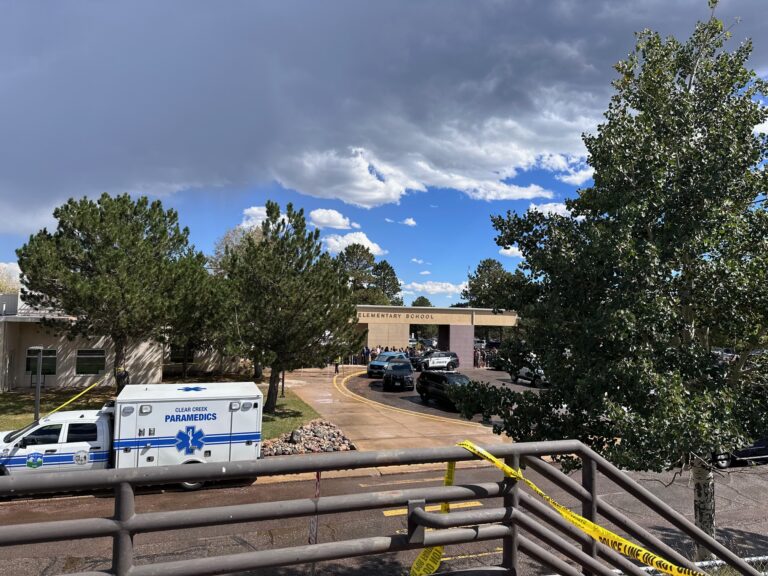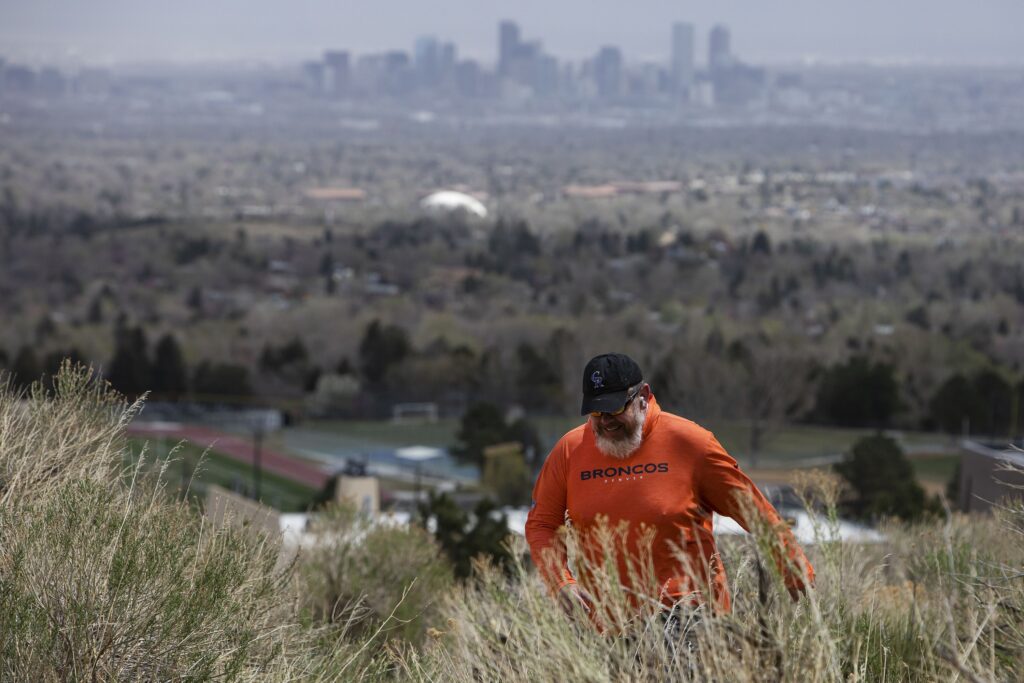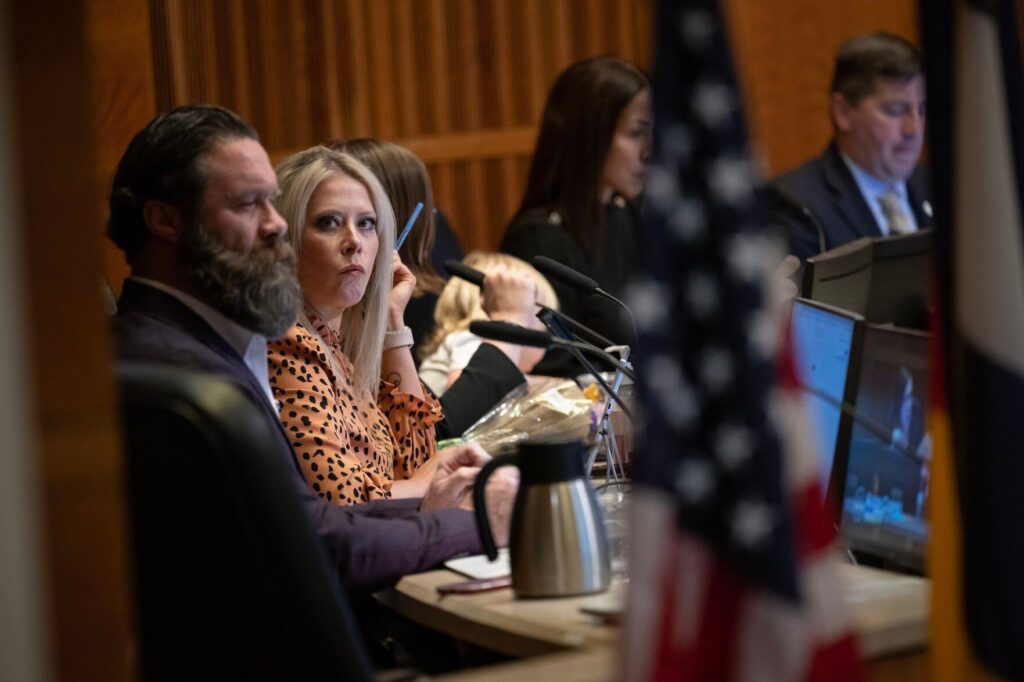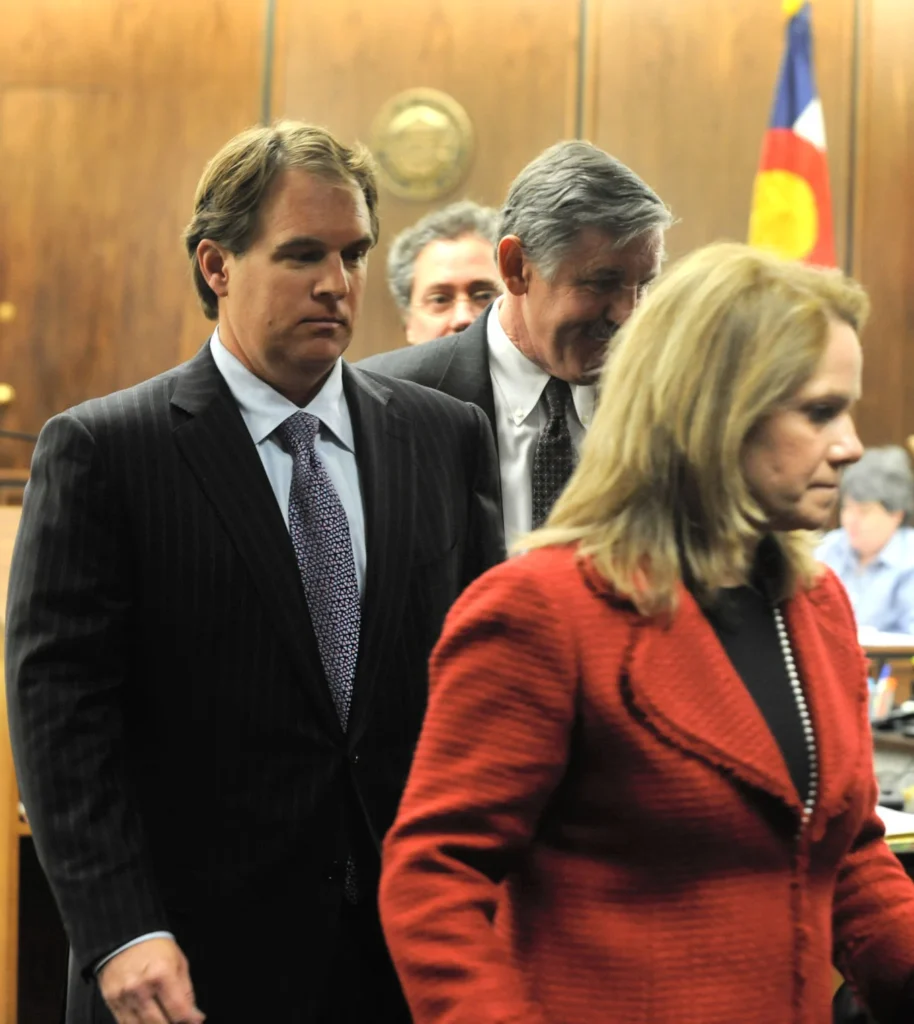Denver resident wins appeal of approval to build ‘micro-community’

A Denver resident on Tuesday successfully appealed the zoning decision to build a “micro-community” site in the Overland Park neighborhood in Denver, forcing Mayor Mike Johnston’s office to refile the permit request.
The successful appeal is unlikely to stop the building of the “micro-community” at 621 W. Wesley Ave., which already broke ground.
But it offers a symbolic victory to residents opposed to the city’s plans to erect “micro-communities” in their neighborhoods to house homeless people. The subject of the appeal is technical in nature — something that city officials are expected to correct, which, if or when done, would likely mean little or no changes to the schedule for opening the micro-community.
Craig Arfsten, president and co-founder of Safe and Clean Denver who filed the appeal, said he does not intend to derail the project.
“I just want to preserve the quality of life for the residents of Overland Park,” he told the city’s Board of Adjustment for Zoning. “I would like to see the mayor succeed, but not at the expense of the neighborhood.”
He added, “Failure is an unacceptable outcome, unacceptable to the neighborhood, unacceptable for the residents of the micro-community, unacceptable for the mayor’s House1000 plan.”
Arfsten, who does not live in Overland Park but told the board he considers it to be a part of his extended neighborhood, is referring to Johnston’s promise — which the mayor made upon assuming office in July — to get 1,000 homeless people off of the city’s streets by the end of 2023.
Johnston’s office said the city reached that goal a day before the New Year.
But the campaign has been expensive.
So far, the Johnston administration, which adopted a “housing first” approach to homelessness, spent $45 million to achieve that goal, and the mayor wants to spend another $50 million this year to move another 1,000 people into shelters.
A key part of the mayor’s strategy is identifying and building “micro-communities,” where the city intends to erect “tiny homes” that would house homeless people following encampment sweeps.
Johnston earlier cited Martin Luther King, Jr. in arguing that the city’s homelessness crisis requires a “fierce urgency of now.”
“When you look at the data for people that died outside on the streets over Thanksgiving weekend,” he said, “that to me is a sign that this is a life or death issue and we have an obligation to get people off the streets and into housing as fast as we can.”
“We’ve done everything, I think appropriately and with partnership and care, but I think urgency is part of what’s required. I think anyone who has someone they know or love that’s homeless would agree with that. I think also if you’re running a business downtown that has six tents in front of it, and people don’t want to come into your business you also get how urgent it is,” he said. “So, when we talk to business owners downtown, they don’t want us to wait at all. When we talk to people that are running restaurants or people that are running transportation you know they don’t want us to wait at all.”
Arfsten raised several points before the appeals board, notably that the zoning administrator’s office erred in favoring the micro-community permit by, among other things, failing to follow the intent of the city’s zoning code to “mitigate potential adverse impacts on surrounding properties, surrounding residential uses and neighborhoods.”
In addition, the zoning administrator also accepted an “incomplete and misleading” summary of a community meeting that Johnston attended, Arfsten said, adding it did not “accurately reflect the facts.”
Ultimately, Arfsten argued, the zoning administrator failed to consider how the micro-community site would “interfere with the reasonable use and enjoyment of adjacent conforming properties, knowing the impact low barrier shelters have on other adjoining properties around the city.”
In an interview with The Denver Gazette, Arfsten said the Johnston administration is building a microsite at 621 W. Wesley Ave. in the middle of a “small, marginalized” community, describing the area as an “island” isolated from the rest of the city and where the average household income is $41,300 a year.
The number of “pallet shelters” — tiny homes equipped with a bed — effectively means “one pallet home for one neighborhood house,” he said.
“The city has no interest in protecting the interests of the residents,” he said. “It’s just a bunch of happy thought.”
During the hearing, a Denver official conceded the city failed to followed a technical procedure.
In particular, Arfsten said Denver failed to uphold the zoning requirement saying the city needs to document outreach efforts, which must include a written record of community meetings and a summary of follow-up plans with the community.
Arfsten, whose group has urged officials to consider “the role that drugs and mental illness play into why someone remains chronically unsheltered,” said Denver needs to conduct another community meeting and take seriously the worries of surrounding residents.
He said the zoning administrator, before approving the city’s zoning request for the micro-community site, must ask one overarching question: What is the recourse for residents, he said, if a “meth addict takes off clothes in a park with kids?”













